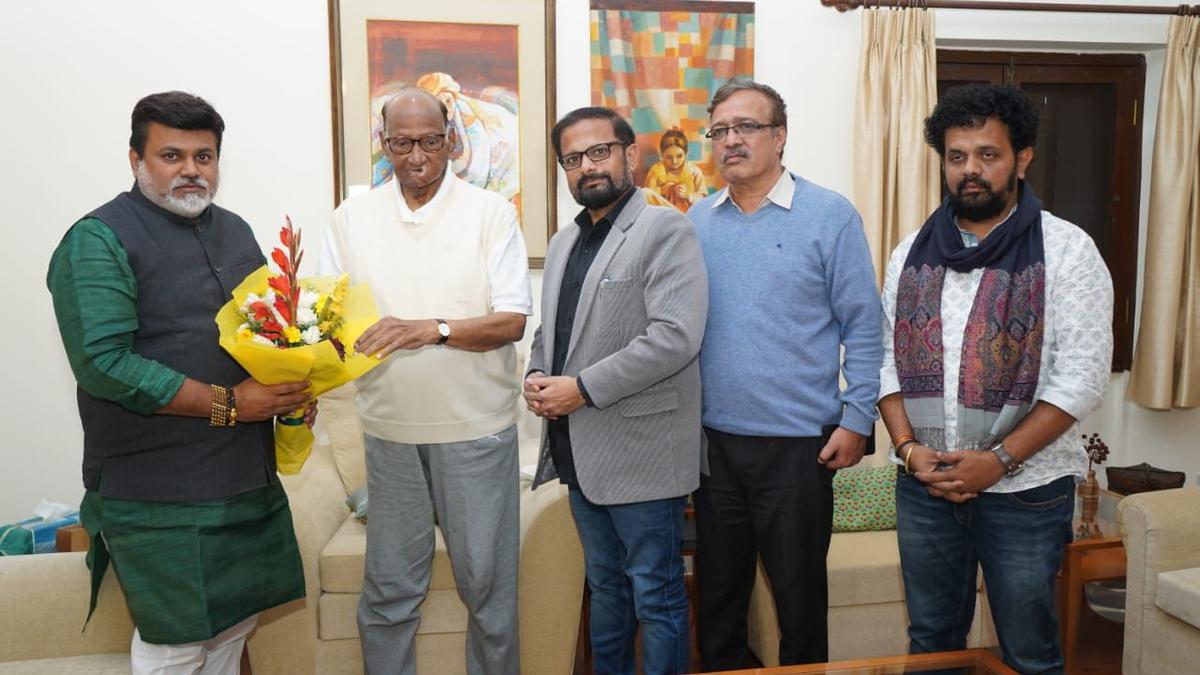 |
|
The felicitation of Maharashtra Deputy Chief Minister Eknath Shinde by senior Nationalist Congress Party (NCP) leader Sharad Pawar has ignited a significant rift within the Indian National Developmental Inclusive Alliance (INDIA) bloc in Maharashtra. This seemingly innocuous event has exposed deep-seated tensions and diverging political strategies amongst key alliance partners, namely the Shiv Sena (UBT) led by Uddhav Thackeray and the NCP (SP) faction headed by Sharad Pawar. The incident underscores the fragility of the INDIA alliance and raises questions about its ability to present a united front against the ruling BJP in the upcoming general elections. The immediate aftermath was a flurry of strongly worded statements and counter-statements, highlighting a significant breakdown in communication and trust between the two prominent Maharashtra parties.
Sanjay Raut, a prominent leader of the Shiv Sena (UBT), vehemently criticized Pawar's decision, likening it to an endorsement of Amit Shah and the BJP. He expressed deep concern over the perceived betrayal, arguing that Shinde's actions had damaged the reputation of Maharashtra and the legacy of Balasaheb Thackeray. Raut's anger and strong rhetoric clearly indicate the depth of the disappointment and the potential for lasting damage to the INDIA alliance's cohesion. His words painted a picture of a deeply hurt and offended Shiv Sena (UBT), questioning the political judgment and loyalty of their erstwhile ally within the INDIA coalition.
The NCP (SP), however, swiftly retorted to the criticisms. Amol Kolhe, an NCP (SP) MP, argued that the Shiv Sena (UBT) should focus on its internal matters and that certain political boundaries ought to be observed. He pointed to Uddhav Thackeray's congratulatory message to Ajit Pawar upon becoming Deputy Chief Minister as an example of similar actions without public outcry. This defensive posture highlights a sense of injustice and a feeling that the criticism levied against Sharad Pawar is unwarranted and disproportionate. The counter-response reveals an underlying power struggle and a reluctance to concede any wrongdoing within the NCP (SP). The exchange of barbs showcases a growing lack of mutual respect and understanding within the INDIA alliance.
The differing perspectives on Eknath Shinde's role also contribute to the escalating conflict. Sanjay Raut contested Sharad Pawar’s claim of Shinde’s contribution to Thane’s development, arguing that Thane's progress was primarily due to the Shiv Sena under Balasaheb Thackeray's leadership and that Shinde's tenure marked the beginning of its decline. This disagreement underscores a fundamental divergence in their assessment of Shinde's political career and his impact on Maharashtra. The clash reveals a deeper ideological division and conflicting historical narratives within the Maharashtra political landscape, making reconciliation more challenging.
Further fueling the tensions, Shiv Sena Shinde group leaders visited Sharad Pawar in Delhi, seemingly attempting to further solidify their ties and perhaps exacerbate the existing rift within the INDIA alliance. Naresh Mhaske’s dismissive remarks about Sanjay Raut, referring to him needing a psychiatrist, demonstrated a complete lack of diplomacy and contributed to the public acrimony between the two factions. This act can be interpreted as a blatant attempt to undermine the Shiv Sena (UBT) and reinforce the existing political alignments. The visit served as a clear signal of the growing distance between the two Shiv Sena factions and their respective allies within the INDIA coalition.
The visit of Aaditya Thackeray to Delhi, while ostensibly personal, adds another layer of complexity to the situation. The possibility of a courtesy call to Arvind Kejriwal suggests a potential realignment of political alliances or at least an exploration of alternative partnerships. This adds another dimension to the existing political instability, as parties explore different options and form new alliances in a rapidly shifting political landscape. The episode underscores the inherent uncertainty and fluidity of the current political scenario.
The fallout from this event extends far beyond a simple political disagreement. It raises serious concerns about the unity and stability of the INDIA alliance, particularly in a crucial state like Maharashtra. The lack of communication and mutual respect displayed between the Shiv Sena (UBT) and the NCP (SP) exposes vulnerabilities within the alliance, potentially impacting its effectiveness in countering the BJP. The incident serves as a warning signal of the challenges the INDIA alliance faces in navigating the complexities of state-level politics and maintaining a united front against a formidable opponent.
The episode highlights the importance of effective communication and conflict resolution within the INDIA alliance. The lack thereof has led to a public display of animosity and distrust, which can severely undermine the credibility and effectiveness of the coalition. The future of the alliance in Maharashtra, and potentially at the national level, depends on addressing these fundamental issues and rebuilding trust between the conflicting parties. The event serves as a stark reminder that political alliances are not immune to internal conflicts and require constant effort to maintain unity and cohesion.
Source: Shiv Sena(UBT) and NCP SP at loggerheads after Sharad Pawar felicitates Eknath Shinde
